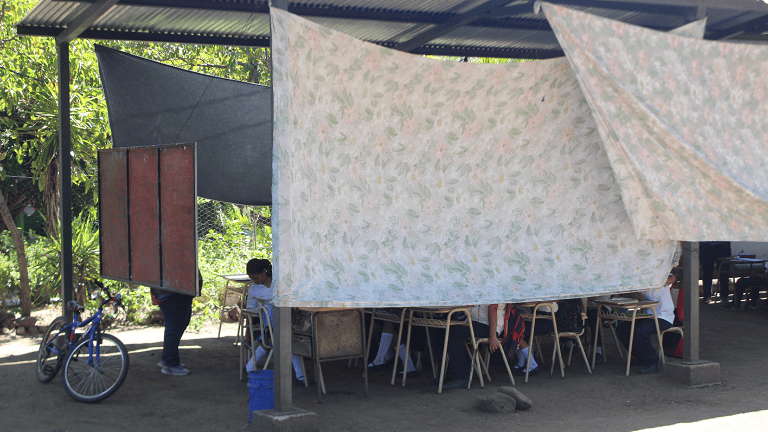Teachers’ unions concurred that the recent prohibition of inclusive language in the education system is not a priority and that authorities should focus on resolving other problems affecting students and teachers.
Bases Magisteriales (Teachers’ Foundations) noted that the teaching profession adapts to the directives of each administration but insisted that what is “truly” concerning is the lack of resources and teachers’ job security. “There are more substantive problems that must be discussed, such as insufficient school budgets, non-compliance with the law, and job stability for the teaching profession,” the association affirmed.
In a similar vein, the Sindicato de Docentes por una Educación para Todos (Teachers’ Union for an Education for All, SINDOPETS) stated that there are more urgent matters than the debate over language.
“We believe there are more important and pressing matters in the education system, such as a coherent curricular framework, adequate resourcing for schools, and ensuring adequate facilities for students and teachers in schools undergoing repair.”
On October 2, the Ministerio de Educación (Ministry of Education, MINED) issued a memorandum prohibiting the use of so-called “inclusive language” in all schools and official agencies under its purview. The directive stipulates that expressions such as “amigue, compañere, niñe, todxs, alumn@” or similar terms must not be used in communications, materials, or educational content.
Docentes del lenguaje inclusivo: Hay otros temas prioritarios
Organizaciones magisteriales coincidieron en que la reciente prohibición del lenguaje inclusivo en el sistema educativo no constituye un tema prioritario y que las autoridades deberían enfocarse en resolver otras problemáticas que afectan a estudiantes y docentes.
Desde Bases Magisteriales señalaron que el magisterio se adapta a las disposiciones de cada gobierno, pero insistieron en que lo “verdaderamente” preocupante es la falta de recursos y la situación laboral de los docentes. “Hay problemas más reales que deben discutirse, como el presupuesto insuficiente en los centros escolares, el incumplimiento de la ley y la estabilidad laboral del magisterio”, afirmó la gremial.
En la misma línea, el Sindicato de Docentes por una Educación para Todos (SINDOPETS) expresó que existen aspectos más urgentes que la discusión sobre el lenguaje.
“Creemos que en el sistema educativo hay cosas más importantes y prioritarias, como la organización curricular coherente, dotación de recursos a los centros escolares, garantizar espacios a los alumnos y maestros de escuelas en reparación”.
El pasado 2 de octubre, el Ministerio de Educación (MINED) emitió un memorando en el que prohíbe el uso del denominado “lenguaje inclusivo” en todos los centros escolares y dependencias oficiales de esta cartera de Estado. La disposición establece que expresiones como “amigue, compañere, niñe, todxs, alumn@” o similares no deben ser utilizadas en comunicaciones, materiales ni contenidos educativos.

